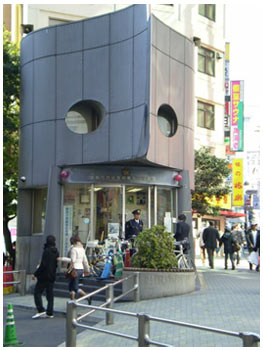In accordance with the Treaty of San Francisco, I’m required to blog about certain core Japan-related concepts every year or so. Two important ones are the twin ideas of tatemae and honne, pronounced tah-teh-MA-eh and HONE-neh. Tatemae literally means facade (like the front of a building) but in actual use, “the way we pretend things are, even though we know they’re not.” Its opposite is honne, translatable as “real sound” but in practice meaning the truth, a person’s real intention, or the way things really are. Some good examples of tatemae are speed limits that no one ever follows, using false humility in front of your boss , and in the case of the U.S., the news media doing everything they could to tear Michael Jackson down then wringing their hands in feigned sadness after he died. Pachinko is another hilarious example of this falseness in action, since gambling for money is illegal here, so instead you win “valuable prizes” which you redeem for cash at a small shop next door. Recently I was coming back from Tokyo on the train and the conductor came on — speaking that cute nasal voice they’re all so good at — to remind passengers standing around the “priority seating” area for elderly people to switch off their cell phones, presumably so radio waves don’t stop someone’s pacemaker from working. It was a cute gesture, but universally ignored by the people in the train, who would never cut off their oh-so-important link with the outside world like that.

Also, prostitution is illegal, but “soaplands” are not. There’s one right behind this Koban (police box) in Shibuya..















